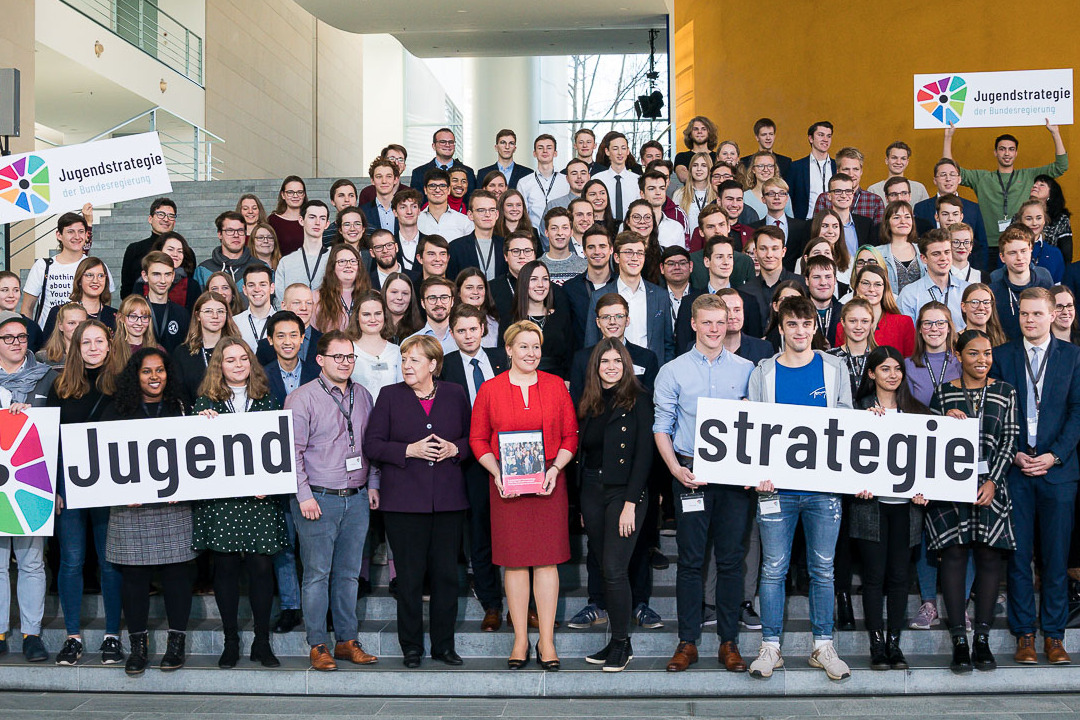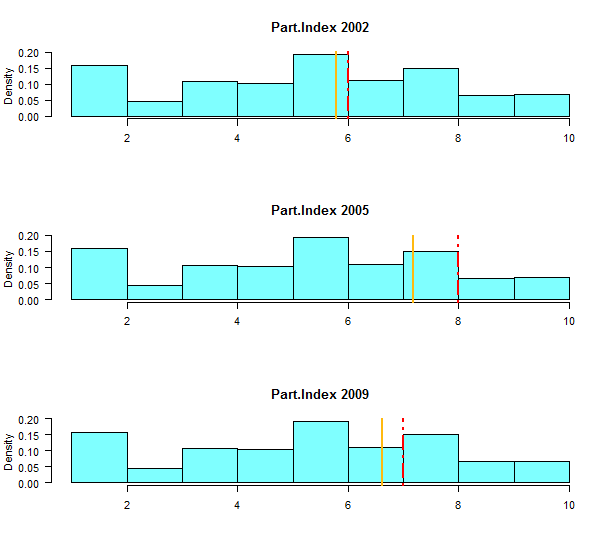Foto von Steffen Kugler unter Creative Commons 2.0 Kira Renée Kurz Vor Kurzem forderte Frankreichs Präsident Emmanuel Macron angesichts der niedrigen Geburtenraten ein „réarmement démographique“ – ein demographisches Wiederaufrüsten. Starke Worte für ein eigentlich sehr privates Themenfeld. Doch die Auswirkungen gesellschaftlichen Alterung werden immer sicht- und spürbarer, sowohl in der Wirtschaft als auch in der Politik. 1980 waren...
WeiterlesenPoliticians in ageing democracies are catering to a grey interest constituency that does not exist
This essay is the last in a series written by Achim Goerres for the project “Ageing Democracies? Political Participation and Cultural Values Among the Elderly in Europe” financed by the Open Society Foundation. The complete project report with all essays and the reports written by the other project members can be found here. “With 20...
WeiterlesenHow the young get more than the elderly out of society – but not out of the state
Pieter Vanhuysse, University of Southern Denmark Accusations levelled against the baby boomer generation for hoarding too much wealth and wielding too much “grey power” in an age of “gerontocracy” have become commonplace across Europe. At the centre of this debate lies the question of what resources different generations pass on to each other –...
WeiterlesenThere will never be a political age conflict between the young and the old.
This essay is the fifth in a series written by Achim Goerres for the project “Ageing Democracies? Political Participation and Cultural Values Among the Elderly in Europe” financed by the Open Society Foundation. The complete project report with all essays and the reports written by the other project members can be found here. In this essay...
WeiterlesenWelchen Einfluss haben persönliche Veränderungen auf die Bereitschaft nicht-institutionell politisch zu partizipieren?
von Florian Gerls. Die Teilhabe am politischen Prozess ist zweifellos Grundpfeiler einer jeden Demokratie. Klassisch durch Wahlen realisiert fand in den 60er und 70er Jahren des letzten Jahrhunderts eine Zunahme von, bis dahin als unkonventionell bezeichneten, Formen politischer Partizipation statt. Demonstrationen, Bürgerinitiativen und Unterschriftenaktionen wurden zunehmend als Möglichkeit zur Ergänzung und später auch als...
WeiterlesenSocial inequalities within the group of older people impede the formation of a politically uniform bloc of older people
This essay is the third in a series written by Achim Goerres for the project “Ageing Democracies? Political Participation and Cultural Values Among the Elderly in Europe” financed by the Open Society Foundation. The complete project report with all essays and the reports written by the other project members can be found here. There are...
WeiterlesenThe political participation of older people is a multidimensional phenomenon within a changing context of political participation that varies widely across Europe.
This essay is the second of a series written by Achim Goerres for the project “Ageing Democracies? Political Participation and Cultural Values Among the Elderly in Europe” financed by the Open Society Foundation. The complete project report with all essays and the reports written by the other project members can be found here. At...
WeiterlesenPopulation ageing is not a new phenomenon in Europe. What is new is that we talk about it.
This essay is the first of a series written by Achim Goerres for the project „Ageing Democracies? Political Participation and Cultural Values Among the Elderly in Europe“ financed by the Open Society Foundation. The complete project report with all essays and the reports written by the other project members can be found here. By...
WeiterlesenWählen als Bürgerpflicht? Die subjektiv empfundene Wahlnorm der 16- und 17-Jährigen im Vergleich
von David Johann (DZHW & Universität Wien) und Sabrina Jasmin Mayer (Universität Duisburg-Essen). Vollständiger Artikel als PDF zum Download. Eine Wahlaltersenkung auf 16 Jahre wird in vielen Ländern diskutiert – auch in Deutschland. Es verwundert daher nicht, dass sich in den letzten Jahren zahlreiche Studien mit Argumenten für und wider eine Senkung des Wahlalters...
Weiterlesen„Also ich find’s gut, aber auch schlecht – einfach gut und schlecht!“ – Für die Messung ambivalenter Einstellungen in Umfrage
von Katrin Prinzen Umfragen bieten für Wissenschaftler, Unternehmen, Politiker und andere Organisationen eine gute Möglichkeit zu erfahren, was die Bevölkerung über ein bestimmtes Thema denkt. Dabei werden die Befragten meist gebeten, ihre Meinung auf einer Skala anzugeben. Diese beinhaltet in der Regel zwei Endpunkte, wie beispielsweise „sehr gut“ bis „sehr schlecht“ mit dazwischen liegenden...
Weiterlesen

